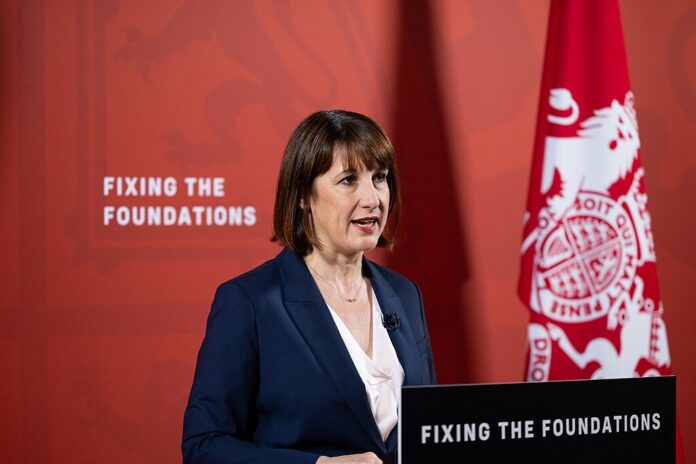Carbon from Derbyshire and Staffordshire plants to be captured and stored offshore in £59.6m Peak Cluster project
The UK government has announced a major carbon capture initiative that will create thousands of jobs across Derbyshire, Staffordshire, and the North West, as it seeks to decarbonise one of the most polluting industries: cement and lime.
Chancellor Rachel Reeves confirmed a £59.6 million investment into the Peak Cluster pipeline project, designed to trap carbon dioxide (CO₂) from cement and lime plants in the Peak District and transport it via underground pipelines to depleted gas fields beneath the Irish Sea for permanent storage.
“This isn’t just climate action—it’s industrial renewal,” Reeves said during the launch. “We’re modernising the cement and lime industry, delivering vital carbon capture infrastructure, and creating good jobs that put more money into working people’s pockets.”
The project is being hailed as the world’s largest cement decarbonisation effort, with around 300 long-term jobs created, 1,200 temporary construction roles, and over 2,000 existing jobs in production supported. Together with the linked Morecambe Net Zero carbon storage project, the scheme could create or secure up to 13,000 jobs, according to government estimates.
Carbon capture and storage (CCS) involves capturing emissions at the source before they escape into the atmosphere and contribute to climate change. The Peak Cluster project aims to prevent over 3 million tonnes of CO₂ annually from entering the air—roughly the equivalent of taking 1.3 million cars off the road.
Embed from Getty ImagesEnergy Secretary Ed Miliband called the move a “landmark investment” that would put British workers “at the forefront of the clean energy transition.” He emphasised the importance of transforming the UK’s industrial heartlands through green innovation, especially in sectors that are hard to decarbonise.
Cement and lime are two of the most difficult sectors to clean up due to the inherent chemical reactions in production that release massive quantities of CO₂. As BBC climate editor Justin Rowlatt noted last year, if cement were a country, it would rank as the third-largest emitter in the world, responsible for 7.5% of global emissions—just behind China and the United States.
The project will be funded through a public-private partnership. The government will invest £28.6 million from the National Wealth Fund (NWF), with the remaining £31 million coming from industry leaders including Holcim, Tarmac, Breedon, SigmaRoc, Summit Energy Evolution, and Progressive Energy.
John Flint, CEO of the NWF, said the initiative represents a bold first step. “Substantial private investment, deployed at risk, will be needed to develop and deliver carbon capture projects across the UK. But we’re ready. This is about unlocking future-ready infrastructure for the long term.”
The NWF has pledged to inject £5.8 billion by 2030 across key green sectors such as hydrogen, ports and supply chains, EV manufacturing, steel, and carbon capture.
John Egan, CEO of Peak Cluster Ltd, said the project would “secure a sustainable future” for an industry that has long been one of the biggest climate offenders. “It’s about cleaner production, stronger communities, and a greener economy for the Midlands and North West.”
As Britain eyes net zero by 2050, the Peak Cluster may mark a turning point—proof that even the dirtiest industries can become part of the solution.
